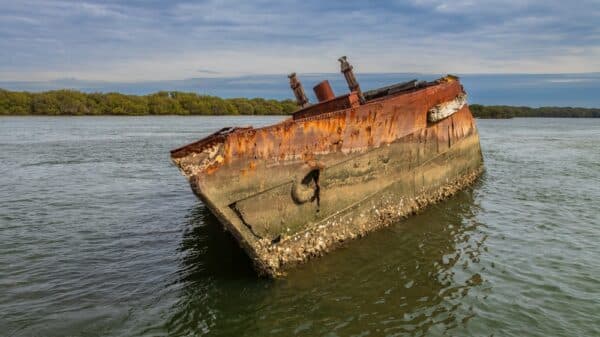In a remarkable turn of events in the ancient climate history of our planet, recent studies have unveiled that a previously undisclosed severe freeze played a crucial role in expelling early humans from Europe for an astonishing period of 200,000 years. However, fret not; they did not surrender easily – these ingenious forefathers of ours adjusted and eventually made a glorious comeback.
This captivating revelation adds an additional depth to our grasp of early human perseverance and strategies for survival.
Awesome Proof Discovered
The disclosure originates from the examination of marine sediments dated back 1.1 million years, collected off the shores of Lisbon, Portugal. These sediments deliver an annual documentation of oceanic conditions and floral landscape through layers of pollen grains, effectively granting us a peek into the bygone era. The abrupt decline in temperatures, estimated at over 5 degrees Celsius, was identified as the cause of this historic environmental disaster.
Preparing for a Freezing Reality
We have all become quite accustomed to the contemporary comforts of warmth, cozy attire, and a steady food supply. Yet, envision encountering such extreme circumstances without these privileges.
Professor Axel Timmermann, head of the IBS Centre for Climate Physics in Busan, South Korea, elucidates that early humans were ill-prepared to face such harsh conditions. Without concrete evidence of fire management during that era, the cold and arid European terrain must have posed a substantial challenge to their continued existence.
The Absent Millennia
For decades, the prevalent belief was that humans had maintained an uninterrupted presence in Europe for roughly 1.5 million years. However, the recent research unveils a missing time frame – a hiatus in human existence from 1.1 million to about 900,000 years ago. This gap was reconstructed through meticulous examination of fossil and archaeological remnants.
Human Remains and Stone Indications
A deeper plunge into the historical archive unveils fascinating discoveries. Human remnants dating back as recently as 1.1 million years ago were found in Spain. This evidence implies that the freeze triggered a transient exodus.
Following this era, artifacts and footprints have been revealed in Happisburgh, Norfolk, England, dating to around 900,000 years ago. Though the specific species inhabiting this region remains uncertain due to limited fossil evidence, clues suggest the presence of Homo ancestor, a more evolved human species.
Adjusting to the Cold
As time advanced, the climate ameliorated, but it remained colder than today’s standards. Nevertheless, early humans appear to have adapted adequately to the freezing conditions.
Professor Nick Ashton from the British Museum speculates that these adaptations may have encompassed increased body fat for insulation, improved hunting and scavenging skills, and the evolution of better clothing and shelters. This adaptability likely paved the path for humans to continually overcome the challenges of successive cold spells and establish residence in Europe.
A Setting for Adaptation
In its ancient form, Europe served as a testing ground for human adaptability. According to Professor Chris Stringer from the Natural History Museum, the resurgence of a hardier species – be it through learning survival strategies or possessing more sophisticated behaviors – laid the groundwork for the eventual establishment of human populations in Europe.
This enduring presence set the stage for the progression of species like Neanderthals and, ultimately, Homo sapiens.
An Icy Legacy
Neanderthals thrived approximately 400,000 years ago and might have evolved from the ancient Happisburgh humans. Meanwhile, our kind, Homo sapiens, emerged in Africa around the same epoch. By 42,000 years ago, we had already settled in Europe, coexisting with Neanderthals until their extinction nearly 40,000 years ago.
Image Source: S.Borisov / Shutterstock






























